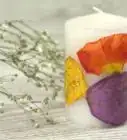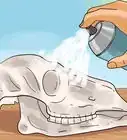This article was co-authored by wikiHow Staff. Our trained team of editors and researchers validate articles for accuracy and comprehensiveness. wikiHow's Content Management Team carefully monitors the work from our editorial staff to ensure that each article is backed by trusted research and meets our high quality standards.
This article has been viewed 73,756 times.
Learn more...
If you picked up some shells at the ocean, it's important to clean them when you get home. A properly cleaned conch shell can be a great souvenir for years to come. To start, soak your shell in bleach for a day. Then, pick off any barnacles and polish the shell with mineral oil.
Steps
Soaking Your Shells in Bleach
-
1Put on protective gear. When working with bleach, it's vital to wear protective gear for your safety. Put on thick gloves and goggles before mixing your solution. Also, be sure to mix bleach in a well ventilated area such as outdoors or in a garage.[1]
-
2Prepare your bleach solution. To soak a conch, mix a solution using half bleach and half water. The precise amounts you need of each depends on how many conches you're soaking. You need enough bleach and water to fully submerge your conches.Advertisement
-
3Soak your shells for 24 hours. Once you've mixed the bleach and water, add your conches to the solution. In about 24 hours, you can remove them from the solution. Some of the dirt will have come off, and any stuck on barnacles will be easier to remove.
- Make sure to wear gloves when putting your conches in the solution, as well as when you remove them.
Removing Barnacles
-
1Pick off any barnacles. A dental tool, flathead screw driver, or strong pick is used to pick off barnacles. Wedge the pick or tool under the barnacle and gently pry it off. This should be fairly easy, as the bleach should have loosened the barnacles.[2]
- If barnacles are being stubborn, chisel them off using a hammer and screwdriver. Angle the screwdriver under the barnacle and gently tap on the end with the hammer. This should dislodge the barnacle.
-
2Scrub down your shell. After removing barnacles, take a scrub brush and wipe down your conches. Use light, scrubbing motions to remove any remaining dirt and debris form the shell.[3]
- If some dirt or stains are not coming off, use your thumbnail to gently scratch them out of the shell.
-
3Let the shells air dry. It's important that your conch shells air dry. Set them in a dry place where they will not be disturbed, such as a cupboard or cabinet. Do not attempt to polish your shells until they are completely dry to the touch.
- It can sometimes take conch shells awhile to completely dry, especially if you live in a cooler region. It is not unusual for shells to take a couple of days to dry completely.
-
4Cover your shell in oil. Once your shells are dry, they may look a little dull from the cleaning process. To brighten them up, dab some mineral oil onto a cotton pad or cotton ball. Rub the cotton on the shell and cover it completely with oil. If the shells is not as shiny as you want after one layer, add another.
- If you do multiple coats, let the shell dry for 12 hours between each coat.
Avoiding Common Mistakes
-
1Examine your shells before taking them from the beach. Make sure the shells you take from the beach do not house aquatic life. Tap the shell gently after picking it up to make sure it is empty. If you hear any scuttling, or see an animal in the shell, put it back where you found it.[4]
-
2Do not leave shells out in the sun too long. To dry your shells faster, you can place them out in the sun. However, do not leave them in the sun for more than a few hours. If shells are left in the sun for too long, they will start to lose color.[5]
-
3Be careful not to crack the shell when removing barnacles. Be extra cautious when removing barnacles. Only use the chiseling method if it's absolutely necessary. You do not want to crack or damage your shell while removing barnacles.[6]
Community Q&A
-
QuestionWill it harm or fade the pink inside of the shell?
 Community AnswerIf the shell is artificially colored, it may lose its color. Add a tad bit of mineral oil to brighten up your conch shell if it has dulled during the cleaning process.
Community AnswerIf the shell is artificially colored, it may lose its color. Add a tad bit of mineral oil to brighten up your conch shell if it has dulled during the cleaning process. -
QuestionI have a very old, porous, fragile conch shell. I would like to paint it. Would I try to condition it with mineral oil first, or just go ahead and paint it? Should I start with a sealer?
 T. ChinsenTop AnswererOil will prevent paint from sticking to the shell, and oil paints will need to used instead. Sealing the shell can do the same if too thick of a coating is applied. If paint and sealant are both water-based, you can combine them and apply it in one step instead of two. Read product label or call their help hotline for an answer. Milk has calcium and can remove ingrained dirt by depositing calcium on the shell under the dirt, causing it to lift off. It may take several days, and the shell needs to be completely covered.
T. ChinsenTop AnswererOil will prevent paint from sticking to the shell, and oil paints will need to used instead. Sealing the shell can do the same if too thick of a coating is applied. If paint and sealant are both water-based, you can combine them and apply it in one step instead of two. Read product label or call their help hotline for an answer. Milk has calcium and can remove ingrained dirt by depositing calcium on the shell under the dirt, causing it to lift off. It may take several days, and the shell needs to be completely covered. -
QuestionI have several shells with a broken edge. I want to plant them with succulents. How can I finish the broken edge so it is not sharp?
 T. ChinsenTop AnswererYou can sand down the edges with sandpaper. A sapphire nail file can be an option. Treat the broken edge like a fingernail: file in one direction using the rough side, then the fine side. Like a nail, the shell is formed in layers, and it needs to be treated carefully to avoid breaking more of the shell.
T. ChinsenTop AnswererYou can sand down the edges with sandpaper. A sapphire nail file can be an option. Treat the broken edge like a fingernail: file in one direction using the rough side, then the fine side. Like a nail, the shell is formed in layers, and it needs to be treated carefully to avoid breaking more of the shell.
Things You'll Need
- Bleach
- Bucket
- Gloves
- Goggles
- Dental tool
- Flathead screwdriver
- Scrub brush
- Mineral oil
- Cotton pad
- Cotton ball
References
- ↑ http://www.iloveshelling.com/blog/2012/09/05/tutorial-for-how-to-clean-horse-conch-shells/
- ↑ http://www.iloveshelling.com/blog/2012/09/05/tutorial-for-how-to-clean-horse-conch-shells/
- ↑ http://www.iloveshelling.com/blog/2012/09/05/tutorial-for-how-to-clean-horse-conch-shells/
- ↑ https://exit63.wordpress.com/how-to-clean-seashells/
- ↑ http://www.travelitgirl.com/2013/06/29/how-to-clean-and-polish-a-conch-shell/
- ↑ http://www.iloveshelling.com/blog/2012/09/05/tutorial-for-how-to-clean-horse-conch-shells/
About This Article
If you’ve found some nice conch shells you want to keep, you can easily clean them with things you probably already have at home. First, mix equal parts of bleach and water in a bowl and soak your conch shells for 24 hours. Lightly scrub your shells with a brush to remove any leftover dirt and grime. If they have any barnacles on them, use a flathead screwdriver, dental tool, or a strong pick to gently pry them off. Then, leave your shells to air dry. Once they’re dry, rub some mineral oil onto the outside of the shells with a cotton pad to make them nice and shiny. For more tips, including how to prevent your conch shells from fading, read on!
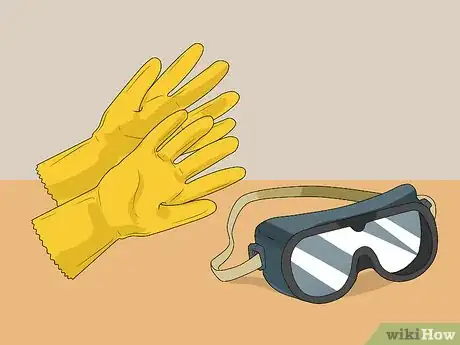
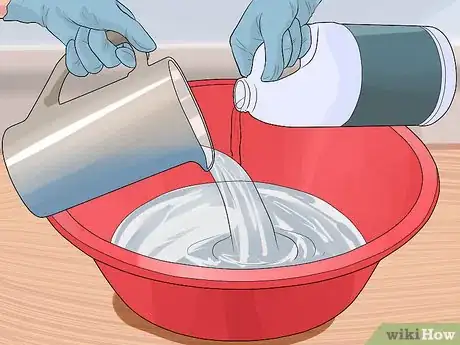
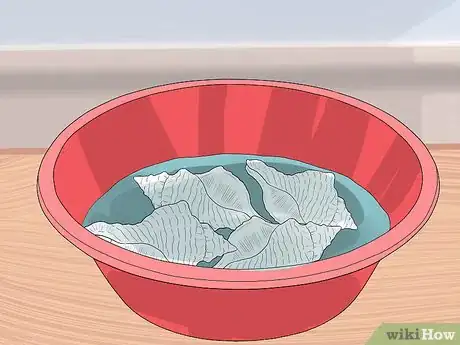
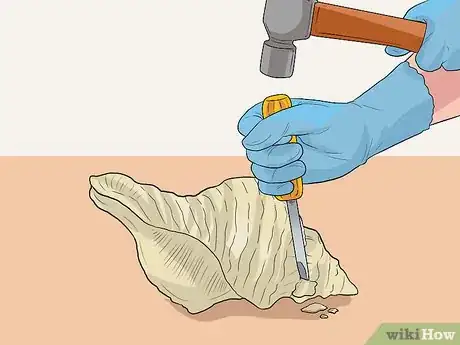
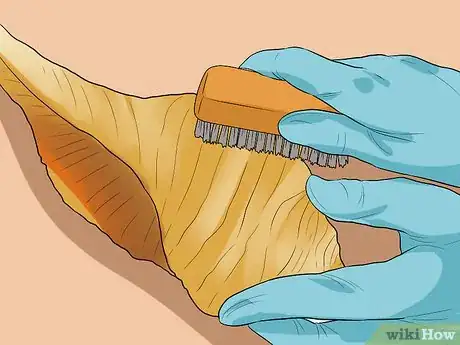
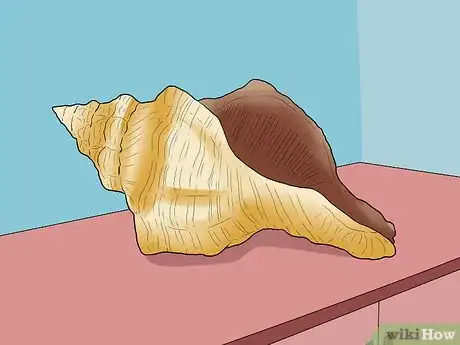
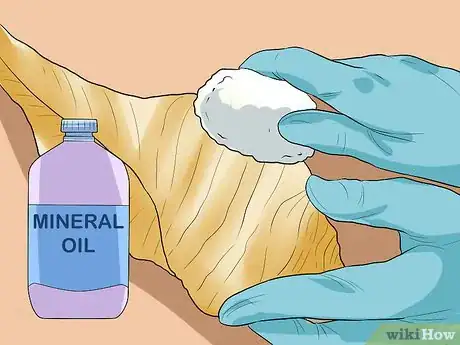
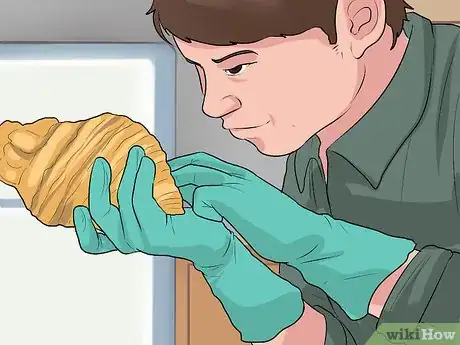
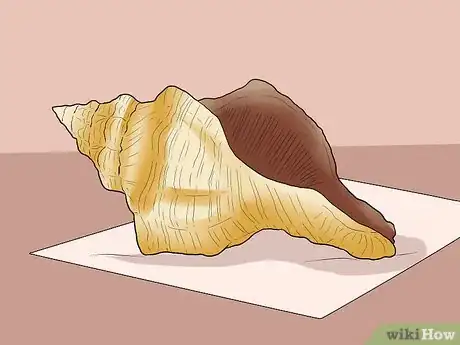
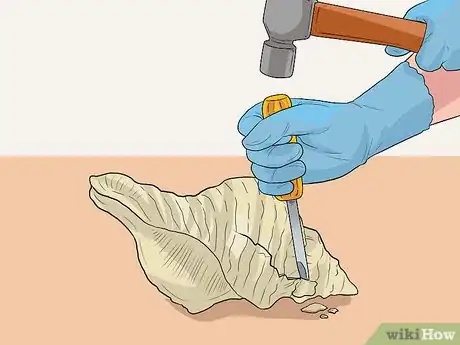
-Step-11.webp)
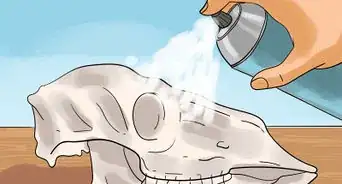
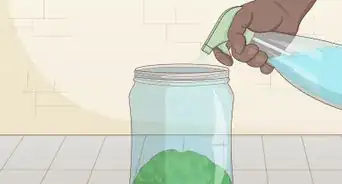
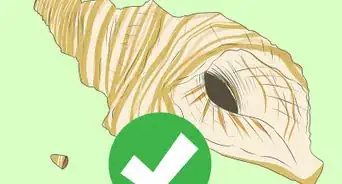
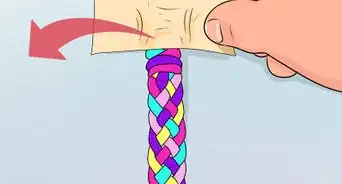










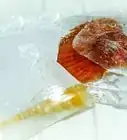
-Step-11.webp)
